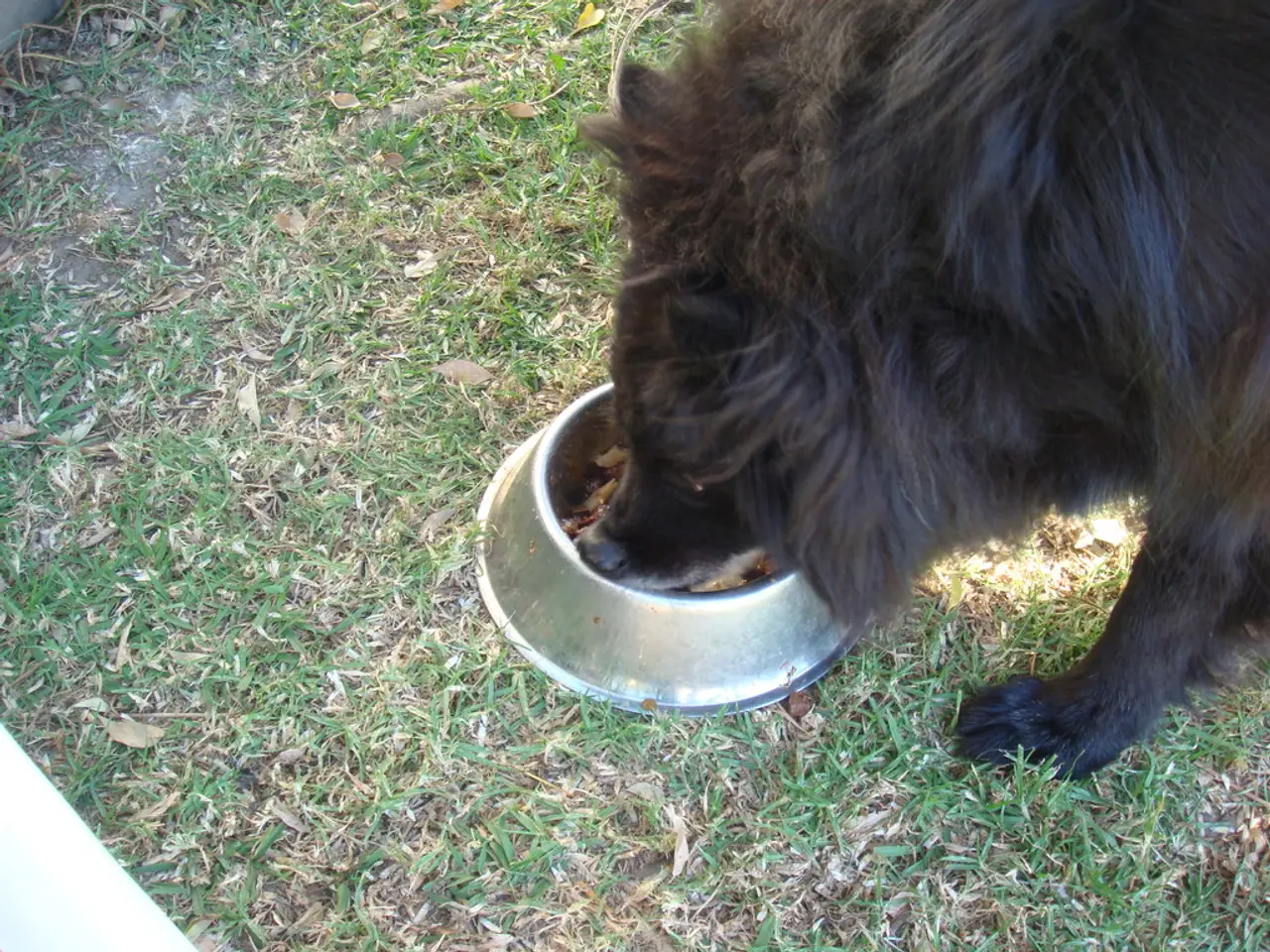City Plans to Allocate ₹2.8 Crore for Nutritious Food for Stray Canines in Bengaluru
In a groundbreaking move, the Bruhat Bengaluru Mahanagara Palike (BBMP) has launched a citywide scheme to provide cooked meals to approximately 5,000 stray dogs daily across Bengaluru's eight administrative zones. This initiative, the first of its kind in India, aims to improve public health and urban management by addressing the stray dog crisis, which accounts for over a third of the world's rabies-related deaths.
The scheme, which is expected to roll out across all zones in the coming weeks, provides nutritious meals—including meat, chicken, and egg rice—to the city's stray canine population. By feeding the dogs regularly, the BBMP hopes to reduce their hunger-driven aggressive behavior, potentially decreasing the incidence of dog bites and related public safety concerns.
In addition to improving public safety, the initiative aims to promote better animal health and welfare. By addressing malnutrition among street dogs, the scheme hopes to protect public health indirectly by reducing the spread of diseases such as rabies.
The program is also seen as a progressive and compassionate approach to urban governance, moving away from punitive measures towards coexistence with street animals. It organizes and professionalizes feeding, which was previously more ad hoc and reliant on local volunteers and restaurants.
With an estimated annual budget of ₹2.8 crore, the BBMP has invited bids from FSSAI-registered caterers to supply freshly cooked meals, ensuring quality and variety. The program also covers food, transport, and cleaning costs to maintain sanitary conditions in feeding areas.
However, the initiative has sparked debate, with some critics questioning the allocation of public funds. Some civic groups demand more transparency in budgeting and suggest the government focus first on improving human welfare and housing infrastructure. Critics question the priority of funding for stray dog feeding amid widespread poverty in Bengaluru.
Despite the controversy, the BBMP defends the program as a public health strategy, aiming to reduce scavenging of garbage, improve neighborhood hygiene, and control the risk of stray dog attacks. Critics have referred to the feeding program as "biryani for strays."
The BBMP tender process for eligible FSSAI-registered service providers to cook and deliver meals is currently underway. Each of the eight zones will see about 500 dogs fed daily, amounting to up to 4,000 dogs in the first phase. The project aims to reach 5,000 stray dogs across the city, potentially setting a precedent for how municipal corporations in India approach animal welfare and public health together.
As the program unfolds, it remains to be seen how Bengaluru's innovative approach to urban governance will impact the city's stray dog population and public health. The initiative has garnered attention from other Indian cities facing similar challenges, signalling a potential shift in the way animal welfare is addressed in urban environments.
- This new citywide initiative in Bengaluru, India, involves not only feeding stray dogs but also supplying nutritious meals, aiming to enhance not only their health and wellness but also indirectly protecting public health by reducing the spread of diseases like rabies.
- The BBMP's scheme, covering expenses for food, transportation, and cleaning to maintain clean feeding areas, also emphasizes fitness and exercise by reducing hunger-driven aggressive behavior among stray dogs, aiming to decrease the incidence of dog bites and promote public safety.
- The implementation of this program, which includes inviting bids from FSSAI-registered caterers for fresh and varied meals, signals a move towards a more compassionate approach to urban governance in India, integrating animal welfare and public health strategies, and potentially influencing similar initiatives in other Indian cities.




